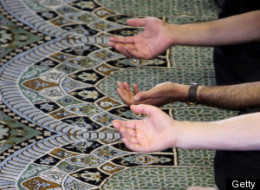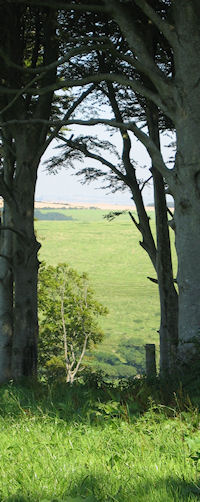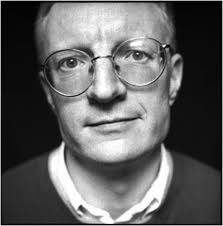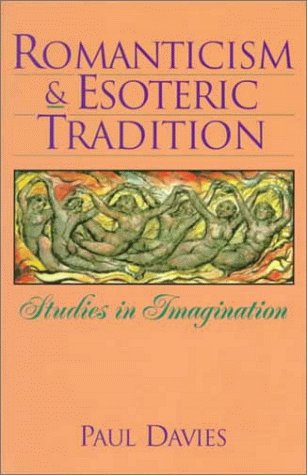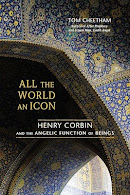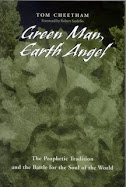"...the Imagination (or love, or sympathy, or any other sentiment) induces knowledge, and knowledge of an 'object' which is proper to it..."
Henry Corbin (1903-1978) was a scholar, philosopher and theologian. He was a champion of the transformative power of the Imagination and of the transcendent reality of the individual in a world threatened by totalitarianisms of all kinds. One of the 20th century’s most prolific scholars of Islamic mysticism, Corbin was Professor of Islam & Islamic Philosophy at the Sorbonne in Paris and at the University of Teheran. He was a major figure at the Eranos Conferences in Switzerland. He introduced the concept of the mundus imaginalis into contemporary thought. His work has provided a foundation for archetypal psychology as developed by James Hillman and influenced countless poets and artists worldwide. But Corbin’s central project was to provide a framework for understanding the unity of the religions of the Book: Judaism, Christianity and Islam. His great work Alone with the Alone: Creative Imagination in the Sufism of Ibn ‘Arabi is a classic initiatory text of visionary spirituality that transcends the tragic divisions among the three great monotheisms. Corbin’s life was devoted to the struggle to free the religious imagination from fundamentalisms of every kind. His work marks a watershed in our understanding of the religions of the West and makes a profound contribution to the study of the place of the imagination in human life.Search The Legacy of Henry Corbin: Over 800 Posts
Tuesday, August 31, 2010
L’Envers du monde – Henry Corbin et la mystique musulmane
L’Envers du monde – Henry Corbin et la mystique musulmane
par Tom Cheetham - traduction Hélène Foreman
L’ouvrage de T. Cheetham est une présentation synthétique et claire de la pensée du philosophe islamologue Henry Corbin (m. 1978), et de ses enjeux pour notre époque. A la différence d’ouvrages fortement philosophiques sur la pensée corbinienne (C. Jambet, La logique des Orientaux : Henry Corbin et la science des formes, 1983, ou D. Shayegan, Henry Corbin – La topographie spirituelle de l’Islam iranien, 1990) L’Envers du monde est destiné à un public plus vaste et éclectique. Tout en connaissant la pensée de Corbin dans ses nuances, Cheetham lui-même ne se présente ni comme pur philosophe, ni comme orientaliste. Il entend simplement souligner l’apport considérable de HC à la pensée contemporaine.
T. Cheetham retrace l’évolution de HC depuis sa rencontre plusieurs grands penseurs, et surtout avec M. Heidegger, dont il fut le premier traducteur en langue française. Avec Heidegger, HC insiste sur le fait que penser est un acte de présence au monde, un « acte d’être ». Ce ne sont pas les circonstances extérieures, sociales qui dictent leur vie aux hommes, c’est le degré d’engagement de leur propre conscience qui donne sens au monde. A la différence de Heidegger toutefois, Corbin ne voit pas la pensée humaine barrée inéluctablement par la conscience de la mort. Avec l’étude des mystiques – musulmans, mais aussi grecs ou chrétiens – HC rend compte d’une expérience où c’est la transcendance, la présence du divin, qui constitue l’horizon de la conscience, qui détermine ce qui est passé ou présent, vie ou mort. Cette redécouverte d’un acte d’exégèse du monde caché, spirituel, est un premier volet essentiel de la pensée de HC.
Cheetham insiste aussi sur une autre dimension de la pensée corbinienne, la redécouverte de l’imagination comme voie de connaissance mystique et philosophique. Il ne s’agit pas ici de l’imagination au sens courant, psychologique, mais de cette faculté désignée par l’adjectif « imaginale » : la capacité de recevoir et de comprendre les formes subtiles qui préexistent à la vie terrestre et la continuent, et cela par les visions et les rêves notamment.
Enfin T. Cheetham rend compte du thème du « paradoxe du monothéisme » évoqué par Corbin. Le monothéisme évacue les intermédiaires entre le Dieu unique et les hommes ; mais comme ce Dieu est infini et incompréhensible, les hommes sont contraints de le représenter par des concepts ou représentation à leur mesure, et retombent ipso facto dans une idolâtrie qu’ils entendaient éviter. D’où la « nécessité de l’angélologie », l’ange représentant le point précis de la rencontre entre le Dieu qui se « personnalise », et l’âme humaine qui se « divinise », événement spirituel central résumant toute la démarche de la mystique. Ecrit dans un style à la fois précis mais clair, l’ouvrage rend ainsi accessible au public non spécialisée une pensée complexe, mais d’une grande fécondité pour notre époque.
par Tom Cheetham - traduction Hélène Foreman
L’ouvrage de T. Cheetham est une présentation synthétique et claire de la pensée du philosophe islamologue Henry Corbin (m. 1978), et de ses enjeux pour notre époque. A la différence d’ouvrages fortement philosophiques sur la pensée corbinienne (C. Jambet, La logique des Orientaux : Henry Corbin et la science des formes, 1983, ou D. Shayegan, Henry Corbin – La topographie spirituelle de l’Islam iranien, 1990) L’Envers du monde est destiné à un public plus vaste et éclectique. Tout en connaissant la pensée de Corbin dans ses nuances, Cheetham lui-même ne se présente ni comme pur philosophe, ni comme orientaliste. Il entend simplement souligner l’apport considérable de HC à la pensée contemporaine.
T. Cheetham retrace l’évolution de HC depuis sa rencontre plusieurs grands penseurs, et surtout avec M. Heidegger, dont il fut le premier traducteur en langue française. Avec Heidegger, HC insiste sur le fait que penser est un acte de présence au monde, un « acte d’être ». Ce ne sont pas les circonstances extérieures, sociales qui dictent leur vie aux hommes, c’est le degré d’engagement de leur propre conscience qui donne sens au monde. A la différence de Heidegger toutefois, Corbin ne voit pas la pensée humaine barrée inéluctablement par la conscience de la mort. Avec l’étude des mystiques – musulmans, mais aussi grecs ou chrétiens – HC rend compte d’une expérience où c’est la transcendance, la présence du divin, qui constitue l’horizon de la conscience, qui détermine ce qui est passé ou présent, vie ou mort. Cette redécouverte d’un acte d’exégèse du monde caché, spirituel, est un premier volet essentiel de la pensée de HC.
Cheetham insiste aussi sur une autre dimension de la pensée corbinienne, la redécouverte de l’imagination comme voie de connaissance mystique et philosophique. Il ne s’agit pas ici de l’imagination au sens courant, psychologique, mais de cette faculté désignée par l’adjectif « imaginale » : la capacité de recevoir et de comprendre les formes subtiles qui préexistent à la vie terrestre et la continuent, et cela par les visions et les rêves notamment.
Enfin T. Cheetham rend compte du thème du « paradoxe du monothéisme » évoqué par Corbin. Le monothéisme évacue les intermédiaires entre le Dieu unique et les hommes ; mais comme ce Dieu est infini et incompréhensible, les hommes sont contraints de le représenter par des concepts ou représentation à leur mesure, et retombent ipso facto dans une idolâtrie qu’ils entendaient éviter. D’où la « nécessité de l’angélologie », l’ange représentant le point précis de la rencontre entre le Dieu qui se « personnalise », et l’âme humaine qui se « divinise », événement spirituel central résumant toute la démarche de la mystique. Ecrit dans un style à la fois précis mais clair, l’ouvrage rend ainsi accessible au public non spécialisée une pensée complexe, mais d’une grande fécondité pour notre époque.
(The anticipated publication date of this translation is still uncertain - but they are working on it. - TC)
Monday, August 30, 2010
Ralph Maud on Olson's "Kingfishers" & Corbin
Ralph Maud has again pointed out Corbin's influence on Charles Olson. In the Epilogue to What Does Not Change: The Significance of Charles Olson's "The Kingfishers" (London: Associated University Presses, 1998) he draws attention to a poem dated 11 February 1966 (pp. 501-2 in The Maximus Poems, ed. Butterick, 1983). As he has pointed out before, the story of the Guardians and the Noble Scribes in Corbin's Avicenna book (p. 148 and elsewhere) had considerable importance for Olson. Maud's comments are on pages 130-1 and I offer those pages below. The relevant paragraphs begin "In his twenty-first year as a poet..."
Ralph Maud - What Does Not Change, Pp 130-1.
Ralph Maud - What Does Not Change, Pp 130-1.
Sunday, August 29, 2010
Sufism Forum
David Kayser has kindly pointed out this article on Sufism and Image Psychology at the Sufism Forum
at the IAS.
at the IAS.
Inrternational Association of Sufism
About the International Association of Sufism
The International Association of Sufism was established in America in 1983 by Seyyedeh Dr. Nahid Angha and Shah Nazar Seyyed Dr. Ali Kianfar. It is a nonsectarian, nonprofit, nongovernmental organization of the United Nations, Department of Public Information.
IAS Goals:
To introduce Sufism in all its varied forms to the public
To make known the interrelation between Sufi principles and scientific principles
To provide a forum for a continuing dialogue between the different schools of Sufism
To preserve and advance the study and goals of Sufism.
Through the efforts of many Sufi masters, the contributions of Sufi orders and schools, and with the help of scholars, educators, translators, and artists interested in the discipline of Sufism, the Association has come a long way toward successfully accomplishing its founding goals. The members of IAS include prominent figures from a multitude of cultures, nations, and backgrounds. Currently, the achievement of the International Association of Sufism has made the organization an DPI Non-Governmental Organization of the United Nations.To our knowledge, this is the first association to be formed to enable Sufis and scholars from around the world, from many nations and traditions to establish relations and come together in the spirit of unity and harmony. You are invited to take part in this historical and humanitarian movement. READ MORE.
Saturday, August 28, 2010
Notes on the Lost Speech
In the spirit of Henry Corbin:
"Poetry's work is to make people real to us through the agency of the voice. "'Poetry is the human voice,' I tell them, 'and we are of interest to one another. Are we not?'" When people are real to you, you can't fly a plane into the office building where they work, you can't bulldoze the refugee camp where they live, you can't cluster-bomb their homes and streets. We only do those things when we understand people as part of a category: infidel, insurgent, enemy. Meanwhile, poetry does what it does, inscribing individual presence, making a system of words and sounds to mark the place where one human being stood, bound in time, reporting on what it is to be one. In the age of the collective of mass culture and mass market, there's hope in that."
from MARK DOTY - Tides of Voices: Why Poetry Matters Now
John Hersey Memorial Lecture
Key West Literary Seminar
Key West, FL
January, 2008
"Poetry's work is to make people real to us through the agency of the voice. "'Poetry is the human voice,' I tell them, 'and we are of interest to one another. Are we not?'" When people are real to you, you can't fly a plane into the office building where they work, you can't bulldoze the refugee camp where they live, you can't cluster-bomb their homes and streets. We only do those things when we understand people as part of a category: infidel, insurgent, enemy. Meanwhile, poetry does what it does, inscribing individual presence, making a system of words and sounds to mark the place where one human being stood, bound in time, reporting on what it is to be one. In the age of the collective of mass culture and mass market, there's hope in that."
from MARK DOTY - Tides of Voices: Why Poetry Matters Now
John Hersey Memorial Lecture
Key West Literary Seminar
Key West, FL
January, 2008
Friday, August 27, 2010
At Home in the World
Wednesday, August 25, 2010
The Vision of Islam
Anyone looking for a clear, concise, reliable and accessible introduction to the spirituality of Islam from an avowed Sufi perspective can probably do no better than Murata & Chittick's The Vision of Islam. They developed this text for their introductory course in Islam at SUNY Stony Brook. I recommend it highly. (Available in different editions)

Photo: The speakers at the November 2009 New York symposium "Islam, Sufism and the Heart of Compassion": Sachiko Murata, William Chittick, Stephen Hirtenstein, Salman Bashier, Mohamed Haj Yousef.

Photo: The speakers at the November 2009 New York symposium "Islam, Sufism and the Heart of Compassion": Sachiko Murata, William Chittick, Stephen Hirtenstein, Salman Bashier, Mohamed Haj Yousef.
Tuesday, August 24, 2010
Here is an essay of interest from the NYTimes: On Dawkin's Atheism
by Gary Gutting of the Department of Philosophy at the University of Notre Dame.
by Gary Gutting of the Department of Philosophy at the University of Notre Dame.
Monday, August 23, 2010
From Simerg.com:
“The Power of Wisdom” – His Highness the Aga Khan’s Interview with Politique Internationale
“The Power of Wisdom” – His Highness the Aga Khan’s Interview with Politique Internationale
Editor’s Note: Politique Internationale is a French political affairs journal, dedicated in particular to international relations. Over the past 32 years, the journal has been recognized as a highly influential French-language publication addressing international issues. As a prominent French journal, it has published interviews with leaders from France and around the world, including His Highness the Aga Khan, whose interview with author and journalist Jean-Jaques Lafaye appeared in the spring 2010 issue (#127).
Simerg has just published an English translation of the interview in which the Ismaili Imam discusses a broad range of issues including the community he leads, philanthropy work, Isl
Saturday, August 21, 2010
THE TENTH PARALLEL
Dispatches From the Fault Line Between Christianity and Islam
By Eliza Griswold
317 pp. Farrar, Straus & Giroux. $27
"The influential political scientist Samuel P. Huntington theorized about the “clash of civilizations.” The journalist and poet Eliza Griswold takes on the same topic in a much more visceral way: she traveled through the “torrid zone” to see, smell, taste and write about it. Her book “The Tenth Parallel” is a fascinating journey along the latitude line in Africa and Asia where Christianity and Islam often meet and clash. Since Americans commonly equate Islam with the Arab Middle East, this book is a useful reminder that four-fifths of Muslims live elsewhere. It’s also an intimate introduction to some of those who live in places like Nigeria, Sudan, Somalia, Indonesia, Malaysia and the Philippines.
Dispatches From the Fault Line Between Christianity and Islam
By Eliza Griswold
317 pp. Farrar, Straus & Giroux. $27
“The Tenth Parallel” is a beautifully written book, full of arresting stories woven around a provocative issue — whether fundamentalism leads to violence — which Griswold investigates through individual lives rather than caricatures or abstractions... READ THE WHOLE REVIEW
Hear the Fresh Air Audio Interview with Terri Gross
Hear the Fresh Air Audio Interview with Terri Gross
Friday, August 20, 2010
Sufi Music in NY
From PRI's THE WORLD: Sufi music in New York. Pakistan sent famous Sufi musicians to the United States. The idea is to portray the “true face of Sufi Islam” to an audience that often sees Pakistan as a haven for terrorists. AUDIO report here
Thursday, August 19, 2010
Children of Dust
Children of Dust by Ali Eteraz
And see his article Sufism's Smiling Face in the Washington Post.
“In this supremely assured, lush, and rip-roaring book, Eteraz manages to do the impossible, gliding confidently over the chasm that divides East and West. Wildly entertaining, Children of Dust is memoir of the first order, as genuinely American as Muslim, unraveling the perilous mystery that is modern Pakistan as only memoir can. Unlike others, Eteraz has truly ‘been there,’ and we are all the better for it. One of the most revealing chronicles of Islamic fundamentalism since Mottahedeh’s classic Mantle of the Prophet.” - Fatima Bhutto
And see his article Sufism's Smiling Face in the Washington Post.
“In this supremely assured, lush, and rip-roaring book, Eteraz manages to do the impossible, gliding confidently over the chasm that divides East and West. Wildly entertaining, Children of Dust is memoir of the first order, as genuinely American as Muslim, unraveling the perilous mystery that is modern Pakistan as only memoir can. Unlike others, Eteraz has truly ‘been there,’ and we are all the better for it. One of the most revealing chronicles of Islamic fundamentalism since Mottahedeh’s classic Mantle of the Prophet.” - Fatima Bhutto
Wednesday, August 18, 2010
Poems for Ramadan
Celebrating Ramadan: Poems of Muslim Faith & Islamic Culture
Becca Klaver
Poetry Magazine
Appearing in both the Huffingtom Post & at the Poetry Foundation. (Thanks to Ron Silliman for the link)
Becca Klaver
Poetry Magazine
Appearing in both the Huffingtom Post & at the Poetry Foundation. (Thanks to Ron Silliman for the link)
Tuesday, August 17, 2010
COURSES ON THE MYTHIC IMAGINATION AND NEOPLATONIC PHILOSOPHY
by Jules Cashford and Patrick Harpur in Dorset, England
by Jules Cashford and Patrick Harpur in Dorset, England
Monday, August 16, 2010
Sunday, August 15, 2010
Reclaiming the Imagination by Timothy Williamson. In the NYTimes. While this isn't what Corbin had in mind by reclaiming the imagination for philosophy and theology, it is more than is often acknowledged by mainstream philosophers. Nice to see I think.
"Imagine being a slave in ancient Rome. Now remember being one. The second task, unlike the first, is crazy. If, as I’m guessing, you never were a slave in ancient Rome, it follows that you can’t remember being one — but you can still let your imagination rip. With a bit of effort one can even imagine the impossible, such as discovering that Dick Cheney and Madonna are really the same person. It sounds like a platitude that fiction is the realm of imagination, fact the realm of knowledge.
Why did humans evolve the capacity to imagine alternatives to reality? Was story-telling in prehistoric times like the peacock’s tail, of no direct practical use but a good way of attracting a mate? It kept Scheherazade alive through those one thousand and one nights — in the story. On further reflection, imagining turns out to be much more reality-directed than the stereotype implies... " Read the entire essay.
Why did humans evolve the capacity to imagine alternatives to reality? Was story-telling in prehistoric times like the peacock’s tail, of no direct practical use but a good way of attracting a mate? It kept Scheherazade alive through those one thousand and one nights — in the story. On further reflection, imagining turns out to be much more reality-directed than the stereotype implies... " Read the entire essay.
Timothy Williamson is the Wykeham Professor of Logic at Oxford University, a Fellow of the British Academy and a Foreign Honorary Member of the American Academy of Arts and Sciences. He has been a visiting professor at M.I.T. and Princeton. His books include “Vagueness” (1994), “Knowledge and its Limits” (2000) and “The Philosophy of Philosophy” (2007).
Friday, August 13, 2010
Metaphysics of the Imagination
Cynthia Fleury, Métaphysique de l'imagination, 2e éd., Paris, d'Écarts, 2001, 745 p. (coll. « Diasthème »)
"Comment découvrir la porte d'entrée des êtres et des choses? Comment accéder à l'autre, à tout ce qui n'est pas moi, à tout ce qui m'échappe et m'abandonne à la solitude? Oui, je vais perdre ceux que j'aime. Oui, je vais mourir. Mais à cette certitude s'ajoute une grâce ou une énigme. Il existe des instants, des lieux à mi-chemin entre monde visible et monde invisible où le temps se suspend, où la dimension de l'un et de l'autre donne accès à une vérité plus belle et plus vraie. Seules ces rencontres inestimables avec l'autre nous aident à saisir le fait même de voir ou de penser. " - CF
From the Publisher: Dans la Métaphysique de l'imagination, l'imagination est une âme ; les images sont, selon Bachelard, les "métaphores de la vie ".
L'Orient et l'Occident s'absentent de la géographie pour devenir les pôles métaphysiques de la pensée. C'est quand l'imagination devient principe de réalité et d'événement que l'âme quitte son exil occidental pour accomplir son " lever " oriental. On approche alors d'un monde imaginal, situé entre sensible et intelligible, entre spiritualité et corporalité.
C'est à la lumière de Sohravardî et en essayant de saisir la pensée de l'Imâm que l'auteur tente d'accéder à l'essence de l'imagination poétique, où la Révélation côtoie l'Intelligence. C'est grâce à Blanchot et à son interprétation de l'écriture et de la lecture qu'elle entrevoit le face-à-face ultime avec la lumière de l'autre : la source d'où émane la connaissance de soi. C'est avec Ibn Arabi, Rûzbehân, Kant, Lévinas et Rilke que l'auteur fait l'apprentissage de l'imagination poétique et créatrice... Cette démarche définit une " impiété filiale " qui se révèle être la véritable fidélité à l'Un.
En vous proposant de partager son sillon, l'auteur vous convie à devenir le pèlerin de ce voyage dans le réel qu'est l'imagination. For more from the publisher.
Cynthia Fleury, docteur en philosophie, travaille dans le cadre du CNRS sur les platoniciens de Perse et les platoniciens de la Renaissance.
From the Publisher: Dans la Métaphysique de l'imagination, l'imagination est une âme ; les images sont, selon Bachelard, les "métaphores de la vie ".
L'Orient et l'Occident s'absentent de la géographie pour devenir les pôles métaphysiques de la pensée. C'est quand l'imagination devient principe de réalité et d'événement que l'âme quitte son exil occidental pour accomplir son " lever " oriental. On approche alors d'un monde imaginal, situé entre sensible et intelligible, entre spiritualité et corporalité.
C'est à la lumière de Sohravardî et en essayant de saisir la pensée de l'Imâm que l'auteur tente d'accéder à l'essence de l'imagination poétique, où la Révélation côtoie l'Intelligence. C'est grâce à Blanchot et à son interprétation de l'écriture et de la lecture qu'elle entrevoit le face-à-face ultime avec la lumière de l'autre : la source d'où émane la connaissance de soi. C'est avec Ibn Arabi, Rûzbehân, Kant, Lévinas et Rilke que l'auteur fait l'apprentissage de l'imagination poétique et créatrice... Cette démarche définit une " impiété filiale " qui se révèle être la véritable fidélité à l'Un.
En vous proposant de partager son sillon, l'auteur vous convie à devenir le pèlerin de ce voyage dans le réel qu'est l'imagination. For more from the publisher.
Cynthia Fleury, docteur en philosophie, travaille dans le cadre du CNRS sur les platoniciens de Perse et les platoniciens de la Renaissance.
Thanks to Daniel Proulx for drawing our attention to this.
Wednesday, August 11, 2010
The Break with the World
A few years ago I wrote a piece that remains unpublished on Ivan Illich's ideas of the "break with the world" and the "institutionalization of grace." I have considered re-writing this essay for publication (it overlaps with some of my published work, and there are things in it I would do differently) but I am unlikely to do so. It may be that there is something useful in here for others to ponder, and the piece marks a stepping stone for me in my work on Henry Corbin, so I offer it here via Google documents. If nothing else I hope it will turn some people's attention to Illich's work.
The Break With the World
The Break With the World
Monday, August 9, 2010
The Return to Being - Sayyid Muhammad Husayn Tabataba'i
The Return to Being: A Translation of Risalat al-Walayah by Sayyid Muhammad Husayn Tabataba'i.
"A precise but essential text for mystical wayfarers, The Return to Being tells the story of the journey of the human soul from the material to the divine. Reminding the reader of the true nature of reality, the author shows how even ordinary people can reach the pinnacle of spiritual perfection and alludes to the spiritual mysteries that await. Helpful indices of Qur’anic verses and the Arabic text of hadith texts cited complement this inspiring, spiritual work."
Translated by Fazel Asadi Amjad and Mahdi Dasht Bozorgi
Introduced and annotated by S K Toussi.
Translated by Fazel Asadi Amjad and Mahdi Dasht Bozorgi
Introduced and annotated by S K Toussi.
Saturday, August 7, 2010
Association for the Study of Esotericism
About the Association for the Study of Esotericism
In May, 2002, the journal Esoterica hosted the First North American Symposium on the Study of Esotericism at Michigan State University. There, the invited participants created a new scholarly organization, the Association for the Study of Esotericism [ASE], along with a mission statement and a set of goals. This organization subsequently was incorporated in August, 2002, as a recognized 501(c)3 non-profit organization. The primary mission of this organization is to support excellence in scholarship and to foster communication among scholars who, though their work originates from a wide range of fields, find esotericism a common theme of their research. Website here.
In May, 2002, the journal Esoterica hosted the First North American Symposium on the Study of Esotericism at Michigan State University. There, the invited participants created a new scholarly organization, the Association for the Study of Esotericism [ASE], along with a mission statement and a set of goals. This organization subsequently was incorporated in August, 2002, as a recognized 501(c)3 non-profit organization. The primary mission of this organization is to support excellence in scholarship and to foster communication among scholars who, though their work originates from a wide range of fields, find esotericism a common theme of their research. Website here.
Friday, August 6, 2010
Thursday, August 5, 2010
New Essays
Here are some important new additions (all are pdf files) to the website of Les Amis de Henry et Stella Corbin (Mahmoud's essays are in English):
NOUVEAUTES :
- 2 - Intervention de Jean-Pierre LAURANT (EPHE) lors de la journée de décembre 2009 « Quelques dérives eschatologiques chez les occultistes français du XIXe siècle »
- 3 - From Heidegger to Suhrawardi 'Mundus Imaginalis' by Samir Mahmoud
- 4 - From Heidegger to Suhrawardi 'Tawil and the Angel' by Samir Mahmoud
- 5 - Mistica dell'Angelo ed Archetipo dell'individuazione in C. G. Jung ed Henry Corbin : sintesi mitologico-comparata par Diego Pignatelli
Wednesday, August 4, 2010
Romanticism & Esoteric Tradition: Studies in Imagination, Paul Davies.Hudson, NY: Lindisfarne Books, 1998. With multiple references to Henry Corbin.
And see this very interesting review:
Spector, Sheila. "On Paul Davies's Romanticism & Esoteric Tradition: Studies in Imagination." Romantic Circles Reviews 4.1 (2001): 15 Jan. 2001.
Spector begins: "The task of reviewing for a scholarly journal a book intended for a popular audience invites a comparison between what are essentially two completely different genres—the trade book and the scholarly monograph—as well as some speculation about the gap that separates the two.1 When the book, like Paul Davies's Romanticism & Esoteric Tradition: Studies in Imagination, deals with so-called New Age teachings, the problems are compounded because at least since the Enlightenment, the rationalists dominating intellectual matters in the West have relegated studies of the occult to the outer margins of what has, as a result, become commonly viewed as some sort of pseudo-scholarship. Yet, as the persistent appearance throughout the centuries of books like Davies's suggests, significant numbers of people, even in the rational West, have always been and continue to be attracted to areas of supposedly unenlightened thought, so the question for the reviewer is not whether or not to condemn a popular text for lacking scholarly rigor but, rather, to consider its implications for academics." Read the entire review.
And see this very interesting review:
Spector, Sheila. "On Paul Davies's Romanticism & Esoteric Tradition: Studies in Imagination." Romantic Circles Reviews 4.1 (2001): 15 Jan. 2001.
Spector begins: "The task of reviewing for a scholarly journal a book intended for a popular audience invites a comparison between what are essentially two completely different genres—the trade book and the scholarly monograph—as well as some speculation about the gap that separates the two.1 When the book, like Paul Davies's Romanticism & Esoteric Tradition: Studies in Imagination, deals with so-called New Age teachings, the problems are compounded because at least since the Enlightenment, the rationalists dominating intellectual matters in the West have relegated studies of the occult to the outer margins of what has, as a result, become commonly viewed as some sort of pseudo-scholarship. Yet, as the persistent appearance throughout the centuries of books like Davies's suggests, significant numbers of people, even in the rational West, have always been and continue to be attracted to areas of supposedly unenlightened thought, so the question for the reviewer is not whether or not to condemn a popular text for lacking scholarly rigor but, rather, to consider its implications for academics." Read the entire review.
Tuesday, August 3, 2010
Iranian poet details sense of lost
Thanks to Ron Silliman for flagging this article from the Australian Press on Iranian poet Mohsen Soltany Zand:
Iranian poet details sense of lost
Also see his blog inside out.
Iranian poet details sense of lost
Also see his blog inside out.
Monday, August 2, 2010
Subtelney's Defense of Corbin
Maria E. Subtelny, “History and Religion: The Fallacy of Metaphysical Questions (A Review Article).” Iranian Studies: March 2003, 36(1): 91-101.
Maria Subtelny - History and Religion - The Fallacy of Metaphysical Questions - A Review Article
Maria Subtelny - History and Religion - The Fallacy of Metaphysical Questions - A Review Article
Subscribe to:
Posts (Atom)








